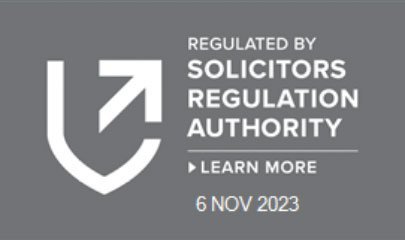Who does pension sharing apply to?
The simple answer is most couples where there is a work-related or privately held pension, there are very few exceptions.
When you end a marriage or civil partnership, all your assets and debts are considered in the overall division of assets regardless of whose name they are held in. The starting point is to share everything 50/50, but this will vary depending on your individual circumstances. There may be good reasons to depart from equality. A Court Order is required to make your agreement legally enforceable and therefore the Court will need to approve any financial settlement reached. You can read more about Matrimonial Finance here.
The Court is clear that pensions are a matrimonial asset suitable for sharing and will support the inclusion of pensions in your matrimonial finance settlement. However, the onus is on you to ensure that the agreement you reach is a fair reflection of your financial position as a couple. It is therefore advisable to take advice from a divorce solicitor and financial intermediaries such as pension actuaries and forensic accountants if necessary.
Even if there is a Pre-nuptial Agreement or Post-nuptial Agreement excluding pensions, it is sensible for a divorce solicitor to review the fairness of the agreement in your current circumstances and consider whether it is likely to be upheld.
Are there any pension schemes which cannot be divided?
Yes, these include:
- Basic State Pension
- New State Pension
- Any pensions already included in a pension attachment or sharing order.
However, some state pensions can be shared within a divorce depending on the year you reach(ed) state pension age, so it is best to seek legal advice.
How can a pension be shared on divorce?
There are several ways a pension can be shared on a divorce or dissolution, a solicitor can help you to assess which option would be most beneficial to you.
Pension Sharing
Pension Sharing allows you to get a share of a percentage of your spouse’s pension(s). This can be via an internal transfer (meaning the person receiving the share keeps it in the same scheme, but in their name) or there may be an external pension share to a different scheme of the receiving person’s choice. Only a court can make this order and unlike other assets, pension funds cannot effect a transfer without a Court Order.
Pros: Can help achieve a balanced and fair settlement as well as providing a clean break. If you are receiving the pension share and your spouse has a high value pension or you are close to retiring and have little provision in your own name it may be a good option for you to pursue.
Cons: Can be difficult to share the pension without also dividing other assets, which may mean selling them. If you want to keep the family home this may not be viable. It can also affect the long-term position of the person with the pension assets as the value of their pension fund will reduce by the percentage of the pension share.
Pension Attachment (also known as pension earmarking)
Pension Attachment enables you to get a specific share of the other person’s pensions once they begin to claim it, either from the pension income, lump sum, or both in some cases. Additionally, your tax-free lump sum can be included in this option.
Pros: the value of the share you/your ex-partner may receive can go up depending on if more is paid into the pension. Also, death-in-service sums can be included.
Cons: there is no clean break as these payments will be made once the partner retires so a connection is retained between the parties. No immediate payment if the paying partner has not retired and payments come to an end upon the paying partner’s death or the receiving partner’s remarriage, leaving them exposed and vulnerable. These orders are also variable.
Pension Offsetting
Pension Offsetting allows you to take into consideration other financial assets and offset their value against the value of the pension. For example, if your partner wants to keep their full pension then it might be appropriate for you to retain a greater share of other available assets.
Pros: Will enable one party to keep/receive other assets which are of similar value to the pension. It can be a cheaper alternative to other methods and enables one person to immediately access the benefit of assets instead of waiting for a Court Order or for their ex-partner to reach retirement age.
Cons: Pension values can fluctuate so it is difficult to guarantee that both individuals exit the marriage with assets that will be of equal value in the future. Sometimes it is difficult to agree on the value that should be attributed to the pension fund and the fairest way in which to share the fund.
Does this include pension earnings accumulated before the marriage?
Some people may have accumulated a portion of their pension, or indeed a separate pension, prior to their marriage or civil partnership and might want to ring fence it so it is protected against sharing on a divorce. This is possible in certain circumstances, but there is no guarantee that a court will allow a party to ring fence the pre-acquired value if it needs to be taken into account to achieve an overall fair financial outcome for both parties. You should take specialist advice if you are worried about this.
How can you accurately value a pension?
Pension providers are legally obliged to provide an annual valuation of your pension known as a cash equivalent value (CEV). While this provides a starting point, a qualified actuary can assess the pension and provide an accurate fair valuation of the fund and crucially anticipated future income on retirement. Although it is not compulsory, it is advisable for you to consider whether an actuary should be instructed to provide a report on the pensions. It can be important to consider not only the value but the benefits on retirement in order to make a fair decision.
LEGAL ADVICE
Allard Bailey specialises in matrimonial finance and divorce settlements. Speak confidentially to our team of divorce lawyers today on 020 7993 2936 or make a Contact Request here. Alternatively, you can Get Started Online to receive a Free Confidential Report outlining your position.































































